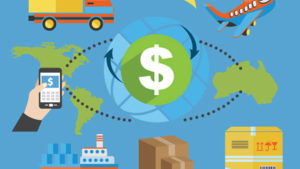Home » Commentary » Opinion » New tax won’t rain on consumers’ parade
· Ideas@TheCentre
 This Sunday will see the long-awaited introduction of the GST on overseas goods priced under $1000, intended to even the playing field for local retailers. Starting on 1 July, GST will apply to things like the books we buy from Book Depository, clothes from ASOS and anything from overseas sellers on eBay.
This Sunday will see the long-awaited introduction of the GST on overseas goods priced under $1000, intended to even the playing field for local retailers. Starting on 1 July, GST will apply to things like the books we buy from Book Depository, clothes from ASOS and anything from overseas sellers on eBay.
While Australians may feel miffed about paying an extra 10%, in reality it will do little to claw back the enormous benefits that consumers reap from online shopping and competition from overseas retailers. As the Productivity Commission has noted, the price differential between local and overseas goods is often much more than 10%.
If anything, this is a good time to reflect on how much Australians have gained from vigorous retail competition in the past 20 years, which has led to price deflation across many goods.
The Australian Bureau of Statistics has re-weighed the different components of the consumer price index (CPI). Consequently, goods like clothing, furniture and household equipment now represent a smaller share of a household ‘basket of goods’ used to calculate CPI.
In other words, the ABS recognises that households are now spending less of their budget on retail goods. And we can thank the internet and overseas retailers for that.
Importantly, low-income households benefit most from price competition, as they need to spend a higher proportion of their disposable incomes on household goods.
Online shopping has even allowed consumers to bypass antiquated and protectionist policies, like our laws that prevent Australian booksellers from importing cheap editions from overseas.
Despite this happy story, we cannot ignore that the ABS has also increased the CPI weighting of services like health and child care. In other words, consumers are now using more of their disposable incomes to pay for these services.
This is not necessarily a bad thing, except these services tend to be highly regulated and not subject to adequate price competition.
We can only hope they will become the next battleground for real competition.
New tax won’t rain on consumers’ parade